Something’s Rotten In The State Of Denmark: Nordic Noir Nation Has Seen A Commissioning Freeze Nightmare Morph Into A Streaming Levy Struggle

“Something is rotten in the state of Denmark,” or so the Shakespeare line goes. Since the start of 2022, the infamous Hamlet phrase feels apt when one considers the state of the country’s renowned TV and film industry, a sector that originated such Nordic noir classics as The Killing and Borgen.
As the writers strike rumbles on stateside, the Danish entertainment industry has been suffering from its own stasis, which has shaken networks, streamers, producers, actors and crew. The Danish production sector is now dealing with a massive decrease in work of up to 50%, according to estimates from knowledgeable industry sources, while controversial government legislation known as the Cultural Contribution Act is central to the future health of the sector.
More from Deadline
Netflix Sign-Ups Jump Amid Password Sharing Crackdown, Report Says
International Insider: Nordic & CEE Deep Dive; Annecy Attack; Harry Takes The Stand
'The Witcher' Season 3 Trailer: Henry Cavill Prepares For His Farewell To Geralt -- Update
So how did we get here? Primary to the chaos was a major commissioning freeze by leading streamers Netflix and Viaplay and the state-owned TV2 over a residuals row with Create Denmark, an organization representing actors, directors, journalists, set designers and musicians.
Back in May 2021, the union began urging members to reject one-off deals and instead negotiated a countrywide framework for digital rights, similar to the Danish residuals model of linear TV and films that hands individuals a percentage of a production’s revenues. TV2 had claimed Create Denmark wanted up to 600% more rights payments on major productions than before. This figure was disputed, but the expectations were publicly described as “greed” by producer Lars Hermann, who admitted both Denmark’s productions companies and Create Denmark had overestimated the value of their content.
Create Denmark’s position was in direct conflict with the streamers’ desire for full rights ownership in exchange for an upfront payment and no new series were ordered for most of the year.
Six major producers — Fremantle-owned Miso Film, ITV Studios-backed Apple Tree Productions, Studiocanal’s SAM Productions, Nordisk Film Production, SF Studios and Tall & Small — warned in an open letter that the shutdown could lead to “a decimation of half the industry” at a cost of around 1B DKK ($130M)- 1.5B DKK ($200M). Many companies were forced into staff cuts as development pipelines went haywire.
In October, Hermann, COO and co-founder of Copenhagen-based drama producer Apple Tree, took to the stage at MIA Market in Rome to warn other countries about expecting too much from streamers. “It is a crazy situation. So there we are, completely screwed,” he said.
Producers estimate that the failure to strike a collective fees agreement quicker slowed down TV production by around 40%. According to DR’s Nordland ’99 creator Kasper Møller Rask, this has also had an impact on risk-taking, as we reported in our Global Breakouts article on Tuesday. He told us he was “100% sure” his Series Mania competition series “wouldn’t have been made in [today’s] climate.” The youth-skewing series, targeted at a young adult audience, was made for public broadcaster DR’s streaming service.
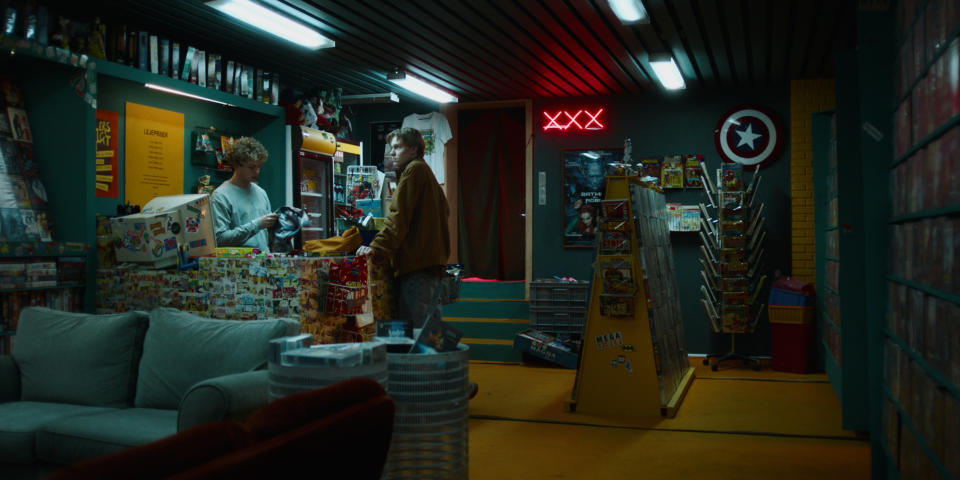
Ultimately, fee deals were reached (though outstanding issues remain in some cases, we hear). While terms haven’t been made public, it’s believed both sides ceded some ground. “We are pleased with the agreements with Netflix, Viaplay and TV2,” says Create Denmark spokesperson and actor Benjamin Boe Rasmussen. “They show that the streaming services want to produce here.”
He continues: “We are not in opposition to the streamers — we want them here, but we have to work out deals that honor the tradition for residuals. We respect that times are changing. Globalization and new business models require this, but we have to respect the rights system, which in Scandinavia means that artists and producers split the risk and thereby create the high level of film and TV production Scandinavian countries are known for.”
With the conflict over, producers hoped the commissioning tap would turn back on and commissions would flood the market, but this hasn’t quite been the case. Viaplay still hasn’t ordered new shows, sources say, and we understand it needs to renew a rolling agreement with Create Denmark imminently, with sources close to the streamer saying it is “working hard to find a long-term, sustainable solution.” Netflix and TV2, which operates streamer TV2 Play, appear to be back up and running more actively.
While the market slowly picks itself up in one sense, producers, creatives and streamers have been faced with a separate challenge: the Danish government’s plan to introduce a streaming levy similar to many other European countries. Contained within the country’s incoming Cultural Contribution Act, the initial plan was to charge streamers 6% of turnover — a number that many thought would send Netflix and co running across the borders to Sweden and Norway. That has since been lowered following campaigning.
Creatives in the local biz agree regulation is needed to ensure global streamers consistently pay into the local TV and film economy, and streamers are understood to be amenable to a tax, if not happy about it. Broadly, the streamers’ position is they already invest heavily and tough regulation will only make them less likely to spend. However, most producers say a formal commitment is necessary.
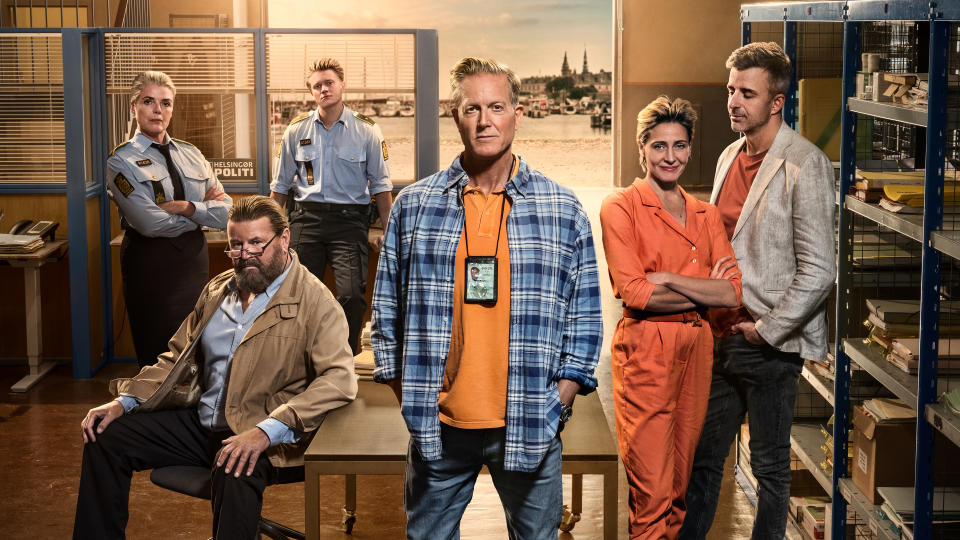
“Our position is that the streaming services have a very strong impact on the economic system for funding films, documentary, content for children and youth and TV series in a small country like Denmark,” says Jørgen Ramskov, Director of Producentforeningen (the Danish Producers Association). “Therefore, we need them to contribute to a future sustainable funding system.”
Sources had expected the Social Democratic Party-led government to announce a finalized Cultural Contribution Act this week as all legislation needs to be concluded by June 5 (Constitution Day) before the new parliamentary year begins in October. However, as of this morning it appears an agreement is still weeks away despite the Danish parliament shutting down tomorrow.
Lobbyists for the entertainment sector have already been successful in having the levy percentage cut to 5% — comparable to rates in Spain and France — and it is expected streamers will be able pay through a mix of a small tax of around 1%-1.5% plus investment obligations. Practically speaking, this is likely to be the bones of whatever is ultimately unveiled, barring a significant change of approach.
“Some streamers still think it’s too expensive but they are digging into an old system of film schools and history that is paid for by tax payers,” says one drama producer. “It’s fair they contribute to that as they pick the best of our system. What’s important for me is they invest in Danish content, which is why we want an obligation. I’m surprised and a bit shocked we still don’t have a solution and the streamers are waiting. They don’t want to invest somewhere with so much uncertainty.”
The streamers are expected to accept the terms but they wonder why they should be “penalized,” as one streamer puts it, when they already spend millions of krone on original and acquired content. They see the streaming levy as harmful to the production sector. “We believe that a streaming levy will harm Danish content creation, instead of strengthening the sector as intended. It will lead to fewer investments, increased uncertainty and reduced content diversity,” says Filippa Wallestam, Viaplay’s Group Chief Commercial Officer for the Nordics. She adds Dutch authorities recently ditched similar plans after a “thorough analysis.”
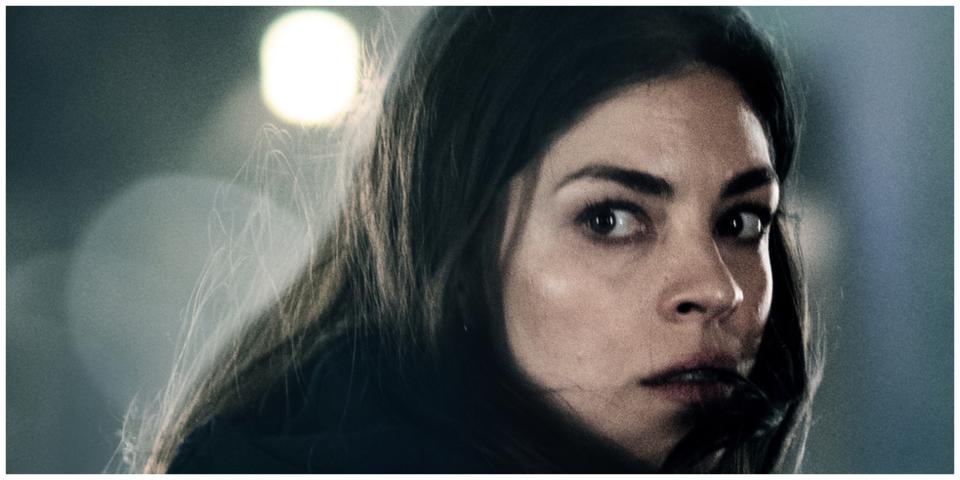
Even if the levy announcement is accepted, Denmark’s problems don’t end there. Ramskov says the body knows of “several” productions being shifted from Denmark to Norway and Sweden following the disastrous 2022, with spend withheld and diverted to those countries. Productions sources have corroborated this trend and producers are hoping it doesn’t happen more regularly in the future.
Denmark’s currency is strong in comparison to its Nordic neighbors, making it a more expensive production base, and extraneous factors like the Ukraine War have contributed to this increase in costs. Furthermore, the country has no tax rebate system to attract productions, and there are wider tax issues afoot, as one producer close to the Cultural Contribution Act negotiations notes: “While that uncertainty about Danish market conditions will finally be out of the way with the levy, there is then a question of VAT on certain cultural services, which have so far been exempt.”
The issues have compounded to leave Denmark feeling like something of a cautionary tale. Peter Bose, co-founder and CEO of Copenhagen-based Darkness: Those Who Kill and Lust producer Miso Film, says: “My prediction is we are facing a decrease in the number of commissions by 40-50% in the next few years.
“We’ll be looking at how we structure for upcoming years — the average series will be hard to sell. You need skills to find that stuff and develop it. We have to use all our skills and knowledge to keep out position. Two years ago everybody could sell a show, but today that’s not the case.”
Players in Denmark
Viaplay, Scandinavia’s most successful international streamer, has a six-month temporary agreement with Create Denmark struck with assistance from the Danish Producers Association, but has not ordered any new shows this year. Ordering local originals was a key tenet of the streamer’s business model, launching almost a show a week from the Nordics at one point, but this has now fallen significantly. Producers suspect investment in sports rights and a cost savings program has had a “significant impact” on commissioning. However, Viaplay will soon launch original series such as contemporary comedy Call Me Dad; a doc about Helle Thorning-Schmidt, the country’s first female Prime Minister; and Bullshit, an unusual coming-of-age drama set in 1980s Copenhagen starring Alba August (Becoming Astrid) and Marco Ilsø (Vikings). Last year saw the launch of a first Danish feature film, Camino, directed by Birgitte Stærmose (Industry, The Spanish Princess), and the third and final season of Lars von Trier’s The Kingdom.
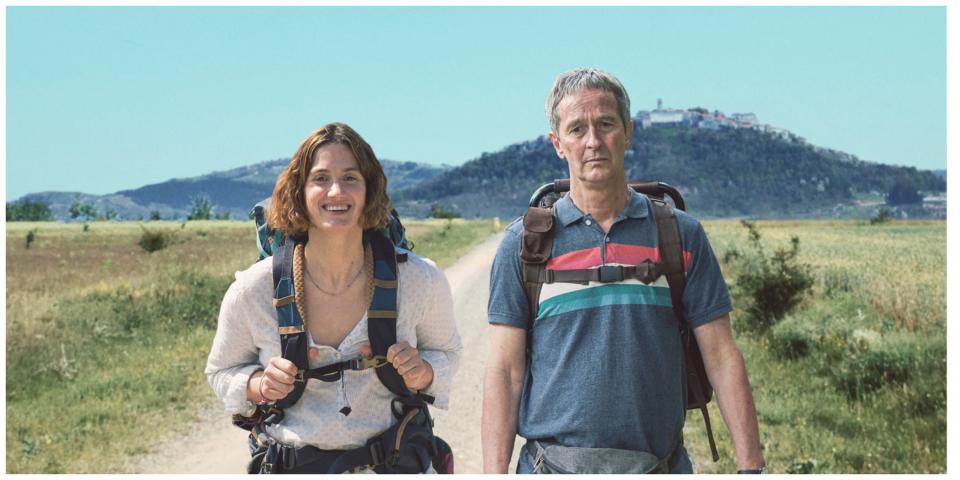
“Viaplay announced they were planning to save €70M-80M [$75M-86M] and they have been doing that by not commissioning new productions,” says one producer speaking anonymously. “They’ve said they need to understand how the levy will impact their model. We hear they will be ready after the summer when an agreement is in place, which show how important it is to have this sorted.”
Viaplay’s Wallestam says the streamer invested “several hundred million krone in local dramas, reality shows, films and documentaries” in 2022 but warns “this investment is currently not a given for the future,” considering the various complications. “The market is characterized by hesitation and restraint, due to uncertainty about the long-term investment climate,” she adds.
Despite this, Wallestam says: “We have been entertaining audiences in Denmark for over 30 years and will keep fighting to produce high-quality Danish content.”
Among Viaplay’s issues are the fact that Denmark has no production incentive — “and rather than planning to introduce one, is considering implementing a tax instead,” says Wallestam. She notes this will make Denmark the only country in the EU with a production tax and no incentive. “Denmark is an important market for us, and we want to get back to where we were, but we need help from the rest of the industry, including Create Denmark and the Danish government,” adds Wallestam.
Netflix is understood to be ordering shows, but producers believe this will only amount to around two to three per year. Nevertheless, we hear the streamer’s commissioning team has been “inundated” with pitches. It’s understood Netflix’s ambitions will be instructed by terms of the levy, but it remains hot on the country, from which it revived political drama Borgen in 2022. A source close to the streamer says the production shutdown decision was made “with a very heavy heart.” Netflix declined to comment for this article.
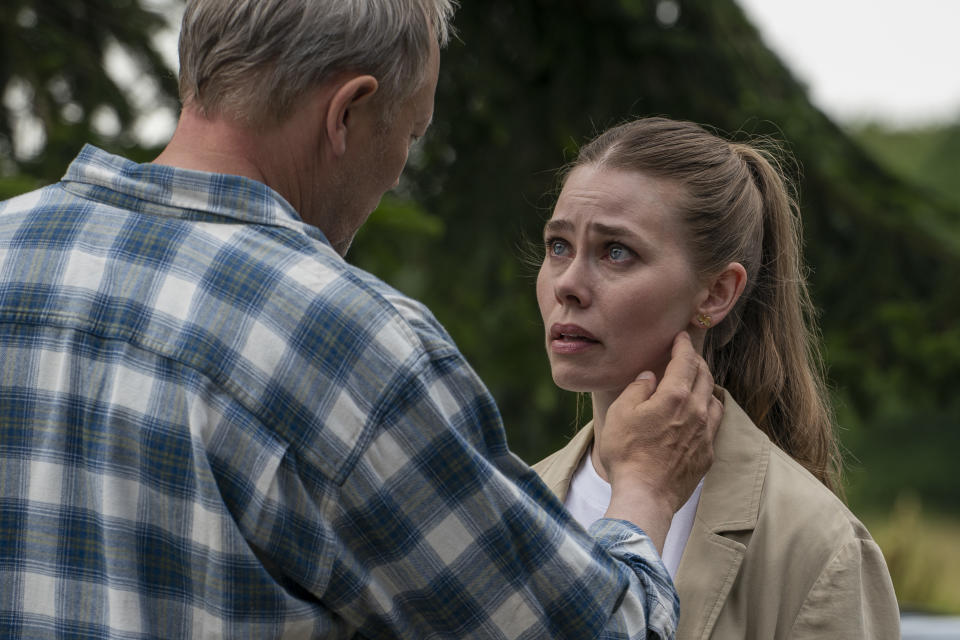
TV2 is commissioning and has an agreement in place with Create Denmark, but we hear this lacks clarity over royalties, pre-sales and minimum guarantees. The network’s slate is considered to be stocked, leaving space for new projects at a premium. TV2 declined to comment but we understand it will launch nine dramas this year and is planning to premiere between 10-12 series in 2025. Several shows have gone into development since the deal was struck in December 2022.
Sources close to the network say it still spent close to $107M on content from Danish indies in 2022, though this covers all genres. Its upcoming drama projects include The Agent, which was in competition at Berlinale Series and premieres this summer, and Oxen, a thriller from triple Emmy-winning scriptwriters Mai Brostrøm and Peter Thorsboe, based on the international bestseller by Jens Henrik Jensen. Other recent titles include season 2 of DNA, a European co-production with ARTE from Lars von Trier’s Zentropa, and The Sommerdahl Murders season 4 from Sequoia Global Alliance.
TV2 execs are understood to feel the industry must collectively take responsibility for the commissioning freeze and learn lessons to avoid similar conflicts arising in the future.
Disney+ has a commissioning team in the Nordics but hasn’t made any Danish orders, and its move to cut headcount and costs in Europe as part of its wider $5.5B saving will not help. Last week, we reported around 100 staff outside the U.S. were at risk of redundancy.

Amazon has been pushing steadily into the Nordic region and producers are now wondering when Prime Video will be a player locally (“Maybe a year?” suggests one source). Last year, Prime Video Head of Content for the Nordics Andreas Hjertø told Deadline: “From a streaming point of view, we want predictability and long terms views, and it’s a marketplace where we don’t know what’s going to happen.” However, it is expected Amazon will accept terms of the levy and order programs and films.
SkyShowtime has hired ex-Shahid and Viaplay exec Fredrik Ljungberg, who is beginning to assess the market but not yet ready to start greenlighting projects. Apple TV+ is taking pitches from Danish producers, but our productions sources say “it’s difficult to find the right project to suit them.” Warner Bros. Discovery is essentially out of the market after HBO Max pulled out of commissioning in 2022 and it sold 21 European originals, including Profile Pictures’ Danish series Kamikaze, to SkyShowtime.
It is understood Disney, Amazon and SkyShowtime haven’t struck collective agreements with Create Denmark and will work on a case-by-case basis. “For now it’s not a problem, as they have started some development but haven’t got close to getting to production,” says one high-profile producer.
‘Order books are empty’
The uncertainty of the past 18 months has been devastating for the production community. We hear that Miso, Drive Studios and SAM Productions have all let staff go in first half of 2022. Last week, Nordisk Film Production announced it was reducing staff numbers and restructuring. “Everyone’s order books are empty, more or less,” says one veteran producer.
“Our hope is that an agreement on a streaming levy will be in place before the end of June, but the industry is severely hurt with high unemployment and many layoffs,” says Ramskov, whose Danish Producers’ Association represents 140 scripted and non-scripted production companies in the country.

“To survive and be healthy we need to stick to where we are,” adds Miso’s Bose. “When the market is under pressure people will work for less, but that’s a zero sum game. Quality is the key word.”
Apple Tree’s Hermann, whose company launched TV2 series Chorus Girls in January, puts it another way. Referencing his much-discussed speaking appearance in Rome last year, he says: “The outlook for Danish producers is a mixed bag, I would say. Or, in other words – we are still f**ked, but for a wider array of reasons.”
As the writers strike rolls on, this once-thriving sector based more than 4,500 miles away from the U.S. provides a stark reminder of what can happen when creativity, labor and money move too far apart.
Best of Deadline
TV Shows Affected By WGA Strike: 'Etoile', 'Zero Day', 'Hysteria!', 'Duster' & More - Updated List
2023 Premiere Dates For New & Returning Series On Broadcast, Cable & Streaming
2023-24 Awards Season Calendar - Dates For Oscars, Emmys, Major Film Festivals, Guilds & More
Sign up for Deadline's Newsletter. For the latest news, follow us on Facebook, Twitter, and Instagram.

